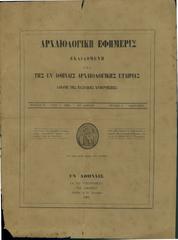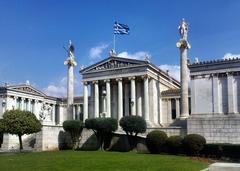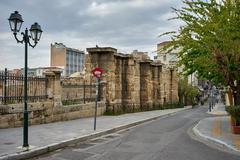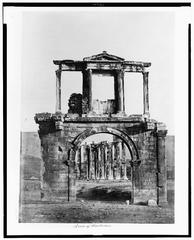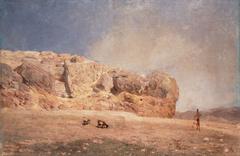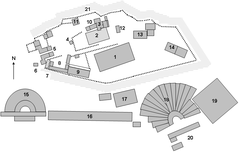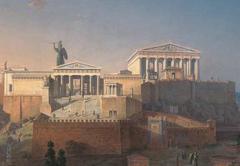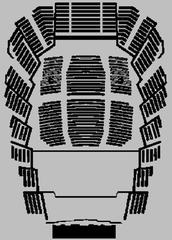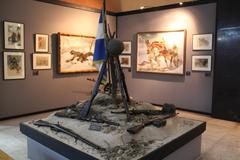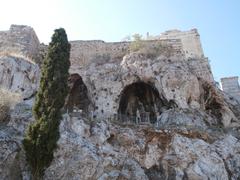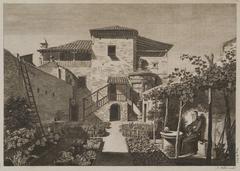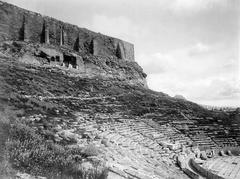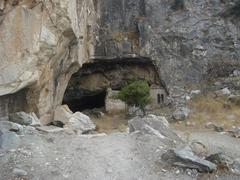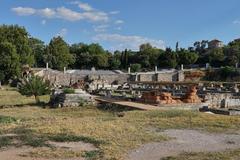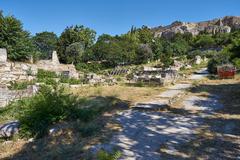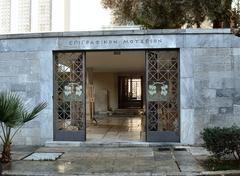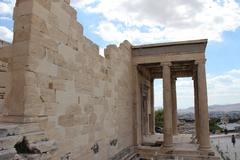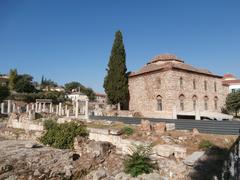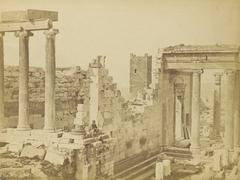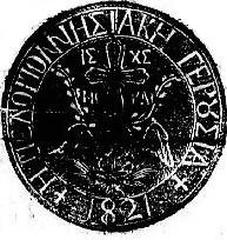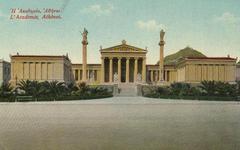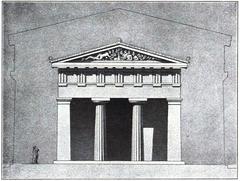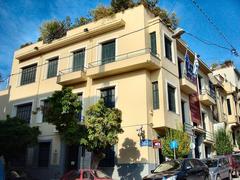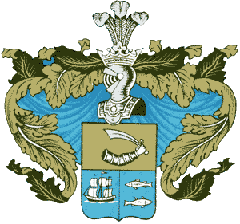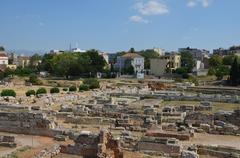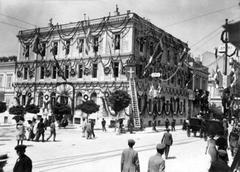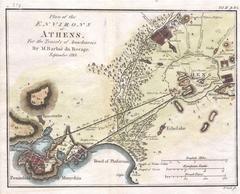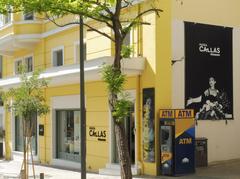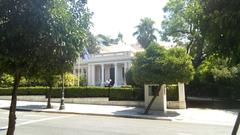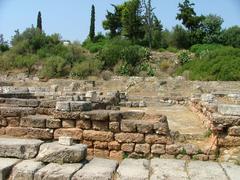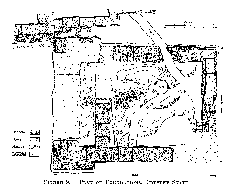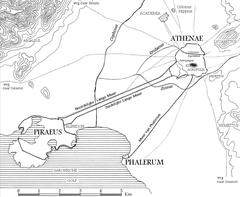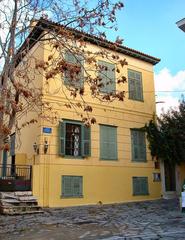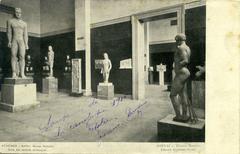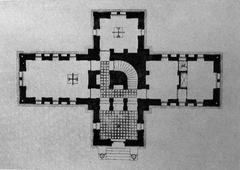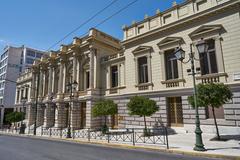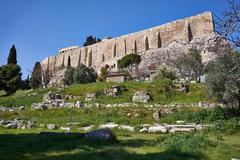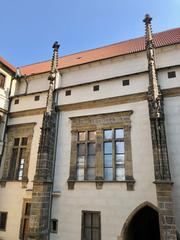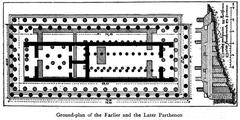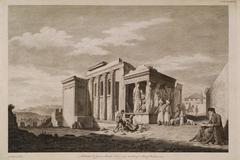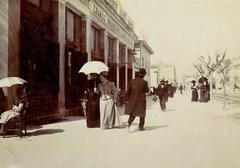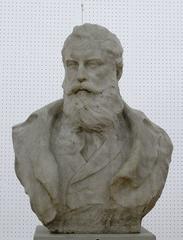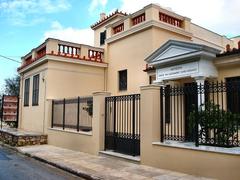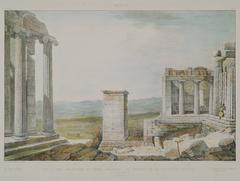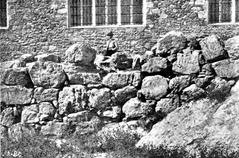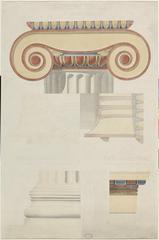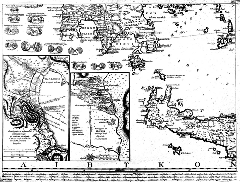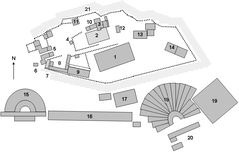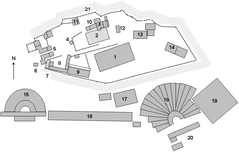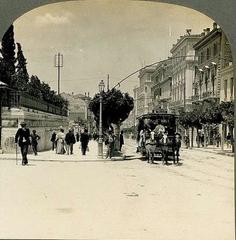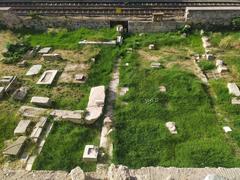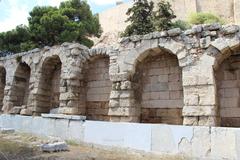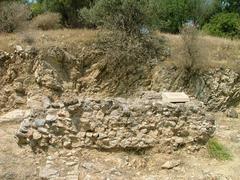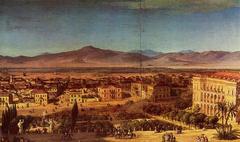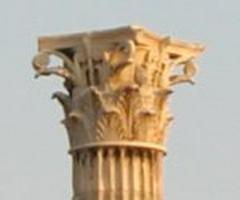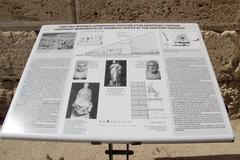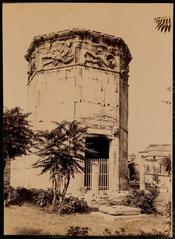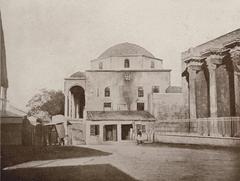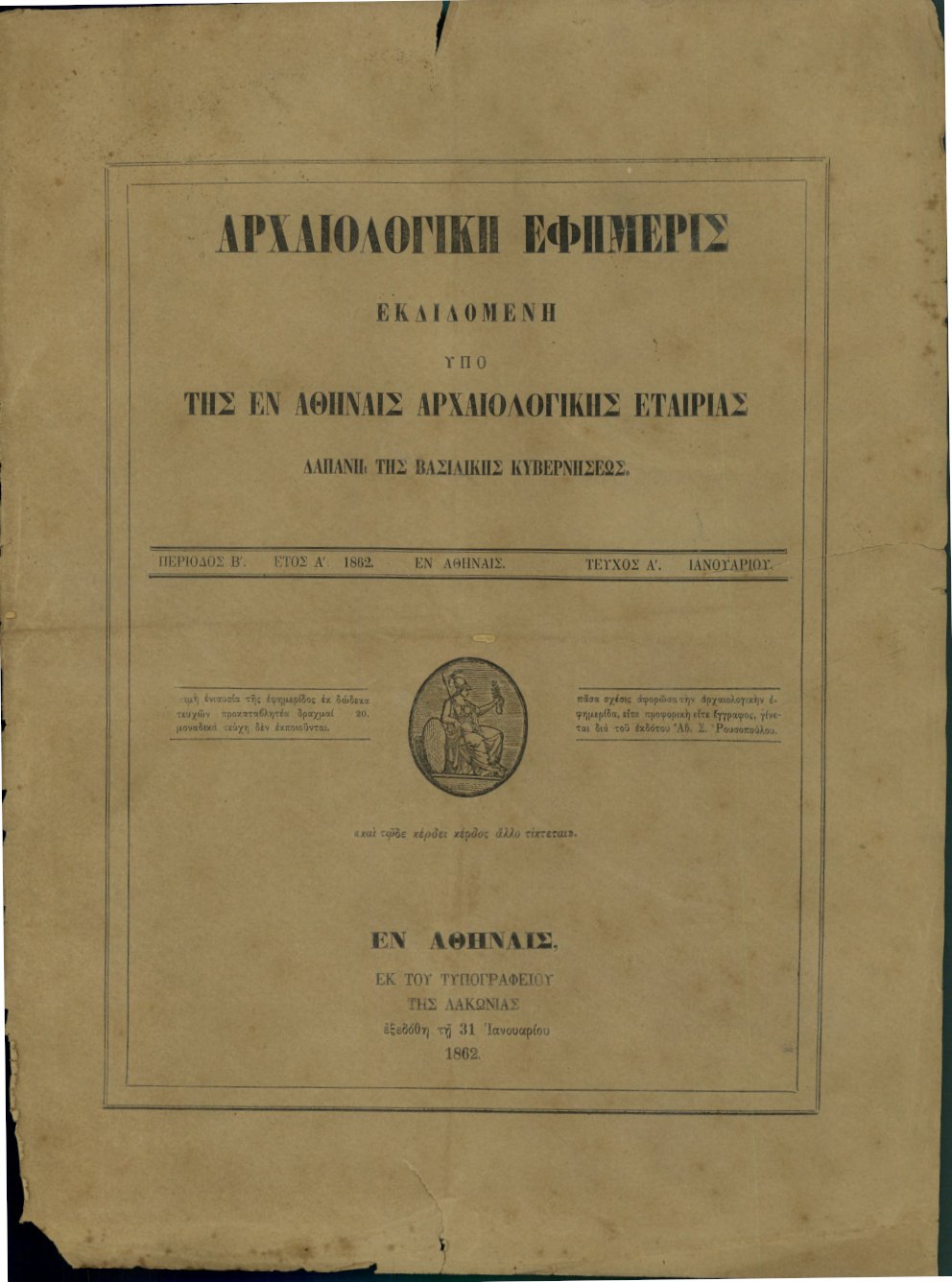
Archaeological Society of Athens: Visiting Hours, Tickets, and Guide to Athens Historical Sites
Date: 14/06/2025
Introduction
The Archaeological Society of Athens (Greek: Εν Αθήναις Αρχαιολογική Εταιρεία), founded in 1837, is one of Greece’s oldest and most influential institutions devoted to the protection, study, and celebration of the country’s ancient heritage. Its establishment shortly after Greek independence marked a turning point in the systematic preservation of antiquities and the development of archaeology as a science in Greece. The Society’s efforts have not only shaped scholarly understanding of Greek antiquity but have also contributed significantly to national identity and the cultural landscape of Athens.
For travelers and history enthusiasts, understanding the Society’s legacy enriches any visit to Athens. This detailed guide provides historical background, outlines major contributions, and delivers practical visitor information—including visiting hours, ticketing, accessibility, and tips for exploring Athens’ most important archaeological sites.
For official updates and more details, consult the Society’s website (archetai.gr), as well as resources like Athens by Locals and Greek Reporter.
Table of Contents
- Historical Overview and Foundation
- Key Contributions to Greek Archaeology
- Visitor Information
- Academic and Cultural Impact
- The Society’s Modern Role
- Frequently Asked Questions (FAQ)
- Complementary Experiences and Nearby Historical Sites
- Practical Tips for Visitors
- Conclusion and Further Resources
Historical Overview and Foundation
Founded in 1837 during the early years of the modern Greek state, the Archaeological Society of Athens (ASA) responded to the urgent need to protect the nation’s ancient monuments and artifacts following years of war and instability. The Society was established by a group of intellectuals, including Constantinos Belios, whose vision was to “discover and restore the antiquities in Greece” (archetai.gr). Initially funded by subscriptions and donations, the Society filled a critical gap in heritage preservation before the creation of the Greek Archaeological Service and the National Archaeological Museum.
The ASA’s headquarters in central Athens quickly became a hub for scholars and archaeologists, facilitating the early institutionalization of archaeology in Greece and setting standards for research, excavation, and conservation (historygreek.org).
Key Contributions to Greek Archaeology
Major Excavations and Discoveries
From its inception, the Archaeological Society of Athens led groundbreaking excavations that revealed the depth and complexity of ancient Greek civilization. Notable achievements include:
- Acropolis of Athens: Systematic excavations exposed not only the famous Classical monuments (Parthenon, Erechtheion) but also earlier Mycenaean and Archaic layers (athensbylocals.com).
- Ancient Agora: Discoveries included the Stoa of Attalos, Temple of Hephaestus, and the Bouleuterion, offering insights into Athenian democracy and daily life (kurtfromcanada.com).
- Kerameikos: Systematic excavations of Athens’ ancient cemetery revealed funerary monuments, city walls, and evidence of urban development (greekreporter.com).
- Regional Sites: The ASA initiated or supported early excavations at Delphi, Eleusis, Olympia, Mycenae, Rhamnous, Thorikos, Marathon, and Epidaurus, expanding the understanding of Greek religious, civic, and funerary practices (wikipedia).
Preservation and Restoration Efforts
The Society has consistently advocated for the protection of archaeological sites from urban encroachment and illicit trade. Its efforts led to the development of legal frameworks for heritage protection and the establishment of early archaeological museums, many of which merged into today’s National Archaeological Museum (greece-is.com).
The restoration of the Stoa of Attalos in the Ancient Agora is a prominent example of the Society’s commitment to conservation. More recently, the ASA has supported initiatives—often in collaboration with the EU—to improve accessibility and visitor experience at major sites like the Agora and Kerameikos (greekreporter.com).
Visitor Information
Visiting Hours and Tickets
While the Archaeological Society of Athens is primarily a scholarly institution and does not operate as a public museum, its headquarters and archival resources are available to researchers by appointment.
- Headquarters Address: 22 Panepistimiou Street, Athens, Greece (archetai.gr)
- Public Access: Visits to the Society’s archives and library require advance booking via email or phone.
- Major Sites (Acropolis, Agora, Kerameikos, etc.):
- Open Tuesday to Sunday, 9:00 AM – 5:00 PM (closed Mondays and major public holidays)
- Standard ticket prices for major sites range from €10–€20. Concessions are available for students and seniors.
- Combined tickets (Athens Combo Ticket) offer access to multiple sites over five days.
- Free admission is available on select Greek national holidays.
Accessibility
Recent upgrades at archaeological sites associated with the Society, including the Agora and Kerameikos, have improved accessibility. Features include wheelchair-accessible paths, ramps, and interpretive signage. For specific needs, contact individual sites in advance (greekreporter.com).
Travel Tips and Nearby Attractions
- Transport: Sites are centrally located and accessible via Athens’ metro (Panepistimio, Monastiraki, and Syntagma stations) and public buses.
- Best Times to Visit: Early morning or late afternoon to avoid crowds and heat.
- Amenities: Major sites offer cloakrooms, restrooms, and information desks.
Academic and Cultural Impact
Publications and Research
The ASA has published influential works, including:
- Praktika tes Archaiologikes Hetairias (Proceedings, since 1837)
- Archaiologike Ephemeris (since 1837)
- Ergon tes Archaiologikes Hetairias (since 1955)
- Mentor (quarterly magazine)
These publications are central to archaeological scholarship, disseminating research findings and excavation reports (archetai.gr).
Influence on National Identity
The Society’s work has profoundly influenced modern Greek national identity, reinforcing the narrative of continuity with the ancient world and establishing Athens as a global center for classical studies (cambridge.org).
The Society’s Modern Role
Collaboration and Accessibility
The ASA collaborates with Greek and international institutions, embracing advanced technologies in excavation, conservation, and digital documentation. Recent EU-funded projects have focused on improving site accessibility and educational outreach (greekreporter.com).
Educational Outreach
The Society offers public lectures, guided tours (occasionally during special events), and educational programs for students and teachers. Details are available on their official website (archetai.gr).
Frequently Asked Questions (FAQ)
Q: Can I visit the Archaeological Society of Athens headquarters?
A: The headquarters is primarily a research facility. Visits are by appointment; public tours are rare.
Q: How do I access ASA publications?
A: Selected publications are available through the ASA’s website or at academic libraries.
Q: What are the visiting hours for major ASA-excavated sites?
A: Most open Tuesday to Sunday, 9:00 AM – 5:00 PM; check official sources for seasonal changes.
Q: Are guided tours available?
A: Many local operators offer guided tours at major sites. The ASA itself occasionally hosts public lectures and events.
Q: Is accessibility provided for disabled visitors?
A: Yes, major sites feature ramps, accessible paths, and facilities for visitors with special needs.
Complementary Experiences and Nearby Historical Sites
Take advantage of the Society’s central Athens location to explore:
- Acropolis of Athens: Including the Parthenon, Erechtheion, and Propylaea (athensbylocals.com).
- Acropolis Museum: Modern museum showcasing treasures from the Acropolis (greece-is.com).
- Ancient Agora: Features the Stoa of Attalos and Temple of Hephaestus (realgreekexperiences.com).
- Kerameikos: Ancient cemetery and museum.
- Roman Agora, Hadrian’s Library, Temple of Olympian Zeus, Aristotle’s Lyceum, Panathenaic Stadium: All within easy reach.
- Museums: National Archaeological Museum (greece-is.com), Benaki Museum, Museum of Modern Greek Culture.
Additional experiences: culinary tours, Plaka and Monastiraki neighborhood exploration, day trips to Cape Sounion, Ancient Mycenae, Epidaurus, Nafplio, or Saronic Islands.
Practical Tips for Visitors
- Plan ahead: Book appointments to access the ASA; buy tickets for major sites online to avoid queues.
- Combined tickets: The Athens Combo Ticket provides value for those visiting multiple sites.
- Visit on free admission days: Select Greek holidays offer free access to state-run archaeological sites.
- Accessibility: Check site-specific guidelines for mobility accommodations.
- Guided tours and audio guides: Enhance your visit with in-depth interpretation.
- Prepare for weather: Wear comfortable shoes, bring water, sunscreen, and dress appropriately.
Conclusion
The Archaeological Society of Athens has been at the forefront of preserving, studying, and celebrating Greece’s ancient heritage for nearly two centuries. Its pioneering excavations, advocacy, and scholarship are woven into the very fabric of Athens’ archaeological landscape. While the Society itself is primarily a research institution, its impact is visible throughout the city’s most iconic sites and museums.
Visitors to Athens can connect with this legacy by exploring the Acropolis, Ancient Agora, Kerameikos, and other historic sites—many of which were first unearthed or protected through the Society’s efforts. By planning your visit with the tips provided here, you can experience the richness of Greek antiquity and deepen your understanding of its enduring influence.
For more information, updates, and event details, explore the official website, and consider using digital resources and apps such as Audiala to enhance your archaeological adventures.
Note: Images are illustrative; use high-quality photos with descriptive alt texts for best results.
Sources and Further Reading
- Archaeological Society of Athens: History, Visiting Hours, Tickets, and Visitor Information, 2025, (historygreek.org)
- Exploring the Archaeological Society of Athens: History, Visitor Info, and Athens’ Historical Sites, 2025, (archetai.gr)
- Archaeological Society of Athens: Visiting Hours, Tickets & Nearby Historical Sites, 2025, (archetai.gr)
- Discover the Archaeological Society of Athens: Visiting Hours, Tickets & Nearby Historical Sites, 2025, (greece-is.com)
- Archaeological Sites More Accessible, 2025, (greekreporter.com)
- The Acropolis of Athens, 2025, (athensbylocals.com)
